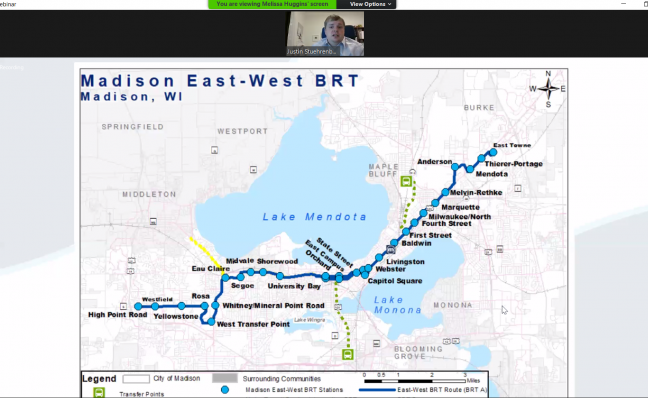The city of Monona is considering phasing out its current transit system in favor of the Madison bus line. Monona’s public transportation has lagged behind Madison’s for many years, with significantly fewer benefits.
The system as it stands today runs two routes, both of which are only available on weekdays for limited hours compared to the Madison system. Monona’s buses are also a dollar more expensive, and at the moment, the two city’s systems do not allow ticket transfers — meaning anyone transferring from a Monona bus to one under the Madison system will have to pay the fee again.
Allowing the Madison bus service to take these lines would provide residents of Monona with a more comprehensive bus service. Additionally, this proposal would improve the public transit scene of Greater Madison by making the overall transit system more cohesive and manageable from the rider’s point of view.
Temporary work visas fail to address fundamental immigration issues
In addition, this would also streamline the process of commuting from Monona to Madison for work, school or any other reason. This is because as of now, anybody commuting using both the Monona and Madison bus lines must pay for both bus fares. This would benefit lower-income residents of Monona who cannot afford a car or are affected by high gas prices.
Not only would the expansion of the Madison transit system benefit the city of Monona, these proposed changes would also benefit Madison. Making it easier to commute from the suburbs to the city would make working in Madison more feasible for Monona residents. This would be a benefit for local Madison businesses and the city’s economy. Allowing people to enter Madison in a more efficient manner will increase economic activity in the city that it may have otherwise missed.
Being able to access the city via one streamlined, cheaper and more efficient bus system would open up employment opportunities to low-income residents that were not available under the original routes. This highlights the broader importance of the bus system as a comprehensive and dependable public transit system that provides economic opportunities to people who need them the most. People experiencing homeless and those who do not have cars especially rely on public transit to get around in and out of the city.
Urbanizing agricultural land presents housing, environmental opportunities
Of course, Madison has a long way to go regarding its public transit. The bus system should implement, at the very least, select 24-hour lines as well as more frequent trips. Additionally, the city of Madison can provide more bus lines around the surrounding areas, benefiting city residents other than local university students centralized in Downtown Madison.
Making it easier for low-income individuals of the city that live well outside university grounds to get around Madison would also open up economic opportunities for these residents, like those in Monona. This could make big strides to foster more economic equity within the Greater Madison area.
But, improving Madison’s public transit scene begins with the more effective approach being considered by the city of Monona. Improving Monona’s bus services with increased and more frequent bus stops can only happen if it is part of the Madison bus line.
While the Madison transit system is not perfect, it is superior to Monona’s by any observable metric. Madison and Monona are inextricably linked cities, both in geography and in their population. Allowing Madison’s bus line to serve the two cities would be mutually beneficial to the cities’ economies and residents, making it a true win-win proposal.
Abbey Handel is a freshman studying journalism and political science.





















